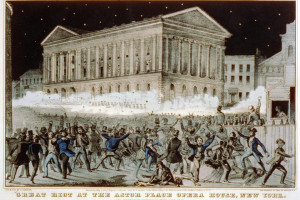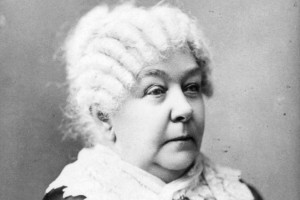Before the era of sky-‐high ticket prices, the theater functioned much like a public park: a communal space where all social classes could come together. The drama onstage was often just a backdrop for the public theater being enacted by the audience. Political venting, social protesting and even rioting were common occurrences—especially in springtime, when the warmer weather let open-‐air theaters resume business.
The Nika riots in 6th-century Byzantium (so dubbed because the rioters chanted “Nika,” meaning “conquer” or “win”) remain the deadliest in theater history.
In 532 A.D., during the reign of Emperor Justinian, the two political factions—the aristocratic Blues and the plebeian Greens—unexpectedly united to protest against new taxes during a public spectacle at the Hippodrome. Using the storied arena as their base, the rioters managed to burn down more than half of Constantinople before Justinian had the Hippodrome surrounded and every exit blocked. His soldiers proceeded to slaughter everyone inside. Contemporary accounts claimed that the death toll exceeded 30,000. After that, public theater of any kind was strongly discouraged by the Byzantine authorities.















